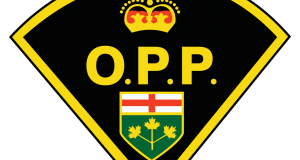February 15, 2022
Recent data indicates that the latest wave of COVID-19 driven by the Omicron variant has passed its peak in Canada. As provinces and territories adjust their public health measures, and as we transition away from the crisis phase, it is now time to move towards a more sustainable approach to long-term management of COVID-19.
This transition is possible because of a number of factors, including Canada’s high vaccination rates, the increasing availability and use of rapid tests to detect infection, decreasing hospitalization rates and growing domestic availability of therapeutics and treatments.
Today, the Government of Canada announced a series of adjustments to the current border measures, representing the beginning of a phased easing of travel restrictions. The ability of the country to transition to a new phase at the border is a result of the actions of tens of millions of Canadians across the country who followed public health measures, including getting themselves and their families vaccinated.
As of February 28, 2022 at 12:01 a.m. EST:
- We will be easing the on-arrival testing for fully-vaccinated travellers. This means that travellers arriving to Canada from any country, who qualify as fully vaccinated, will be randomly selected for arrival testing. Travellers selected will also no longer be required to quarantine while awaiting their test result.
- Children under 12 years old, travelling with fully vaccinated adults, will continue to be exempt from quarantine, without any prescribed conditions limiting their activities. This means, for example, they no longer need to wait 14 days before attending school, camp or daycare.
- Unvaccinated travellers will continue to be required to test on arrival, on Day 8 and quarantine for 14 days. Unvaccinated foreign nationals will not be permitted to enter Canada unless they meet one of the few exemptions.
- Travellers will now have the option of using a COVID-19 rapid antigen test result (taken the day prior to their scheduled flight or arrival at the land border or marine port of entry) or a molecular test result (taken no more than 72 hours before their scheduled flight or arrival at the land border or marine port of entry) to meet pre-entry requirements. Taking a rapid antigen test at home is not sufficient to meet the pre-entry requirement – it must be authorized by the country in which it was purchased and must be administered by a laboratory, healthcare entity or telehealth service.
- The Government of Canada will adjust its Travel Health Notice from a Level 3 to a Level 2. This means that the Government will no longer recommend that Canadians avoid travel for non-essential purposes.
- Travellers should understand the risks that are still associated with international travel given the high incidence of Omicron, and take necessary precautions.
- On February 28, 2022 at 16:00 EST, Transport Canada’s Notice to Airmen (NOTAM) that restricts where international passenger flights can arrive in Canada will expire. This means that international flights carrying passengers will be permitted to land at all remaining Canadian airports that are designated by the Canada Border Services Agency to receive international passenger flights.
- NFMC’s $1,000,000 Contribution Supports Strategic Development of Peninsula Harbour Port Through Marathon–Biigtigong Nishnaabeg Partnership - June 30, 2025
- Thank you from the graduates of École secondaire Saint-Joseph - June 30, 2025
- Thank you from the graduates of École secondaire Saint-Joseph - June 30, 2025
 Wawa-news.com You can't hear the 'big picture'!
Wawa-news.com You can't hear the 'big picture'!
